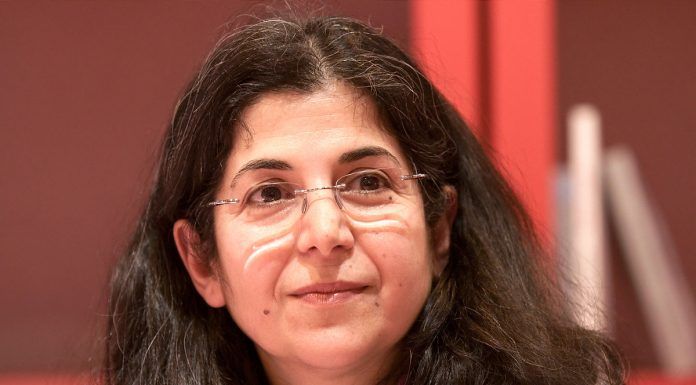By John Irish
BRUSSELS, July 15 (Reuters) – French President Emmanuel Macron on Monday demanded an explanation from Iran after the arrest last month of Franco-Iranian dual national Fariba Adelkhah, an incident that complicates Paris’ efforts to defuse tensions in the region.
Adelkhah, an academic researcher, was arrested in Iran in June by the Revolutionary Guards for allegedly spying, according to media reports over the weekend.
“What’s happened worries me a lot. We were informed for several days and I had the opportunity to express not only my disagreement but my desire to have clarifications from President (Hassan) Rouhani,” Macron told a news conference in Belgrade.
“I’m waiting for the clarifications, but it’s obvious that France protects its citizens.”
Adelkhah, a 60-year-old anthropologist, is senior research fellow at Sciences Po in Paris. Her arrest comes as France is trying to de-escalate tension between longtime foes Iran and the United States over Tehran’s 2015 nuclear deal.
“No explanations at this stage have been given to me to explain in a valid way this arrest,” Macron said.
Asked earlier on Monday about the arrest, Iranian government spokesman Ali Rabiei was quoted as saying by the semi-official Tasnim news agency that he had heard reports of the arrest but had no further information.
It was not clear when Macron spoke to Rouhani on the issue, but he officially spoke to Rouhani on July 6. At the time, there was no mention in the readout by the French presidency of Adelkhah’s arrest. Macron’s top diplomat was also in Tehran and saw Rouhani last week.
France’s foreign ministry earlier on Monday demanded consular access to her “without delay.”
“The French authorities in this difficult context have taken steps with Iranian authorities to get information from them on her situation and the conditions of her arrest and asked for consular access as is foreseen in these circumstances, necessary precursor for her quick release,” foreign ministry spokeswoman Agnes von der Muhll said in a statement.
“No satisfactory response has been given to these requests.”
Iran previously arrested and charged French citizens, including in 2009. Iran released that detainee a year later.
Rights activists have criticised Iran‘s arrests of dual nationals that they say are aimed at getting concessions from other countries. In April, Iranian Foreign Minister Mohammad Javad Zarif offered a prisoner swap to secure the release of jailed Iranians in the United States.
Iranian authorities have denied holding detainees for ransom and accuse Western governments of holding Iranians on trumped-up charges.
In 2016, Iran released five U.S. citizens in a prisoner exchange as the nuclear deal was implemented.
(Reporting by John Irish; Additional reporting by Parisa Hafezi in Dubai and Michel Rose and Marine Pennetier in Paris; Editing by Sudip Kar-Gupta and Peter Cooney)


